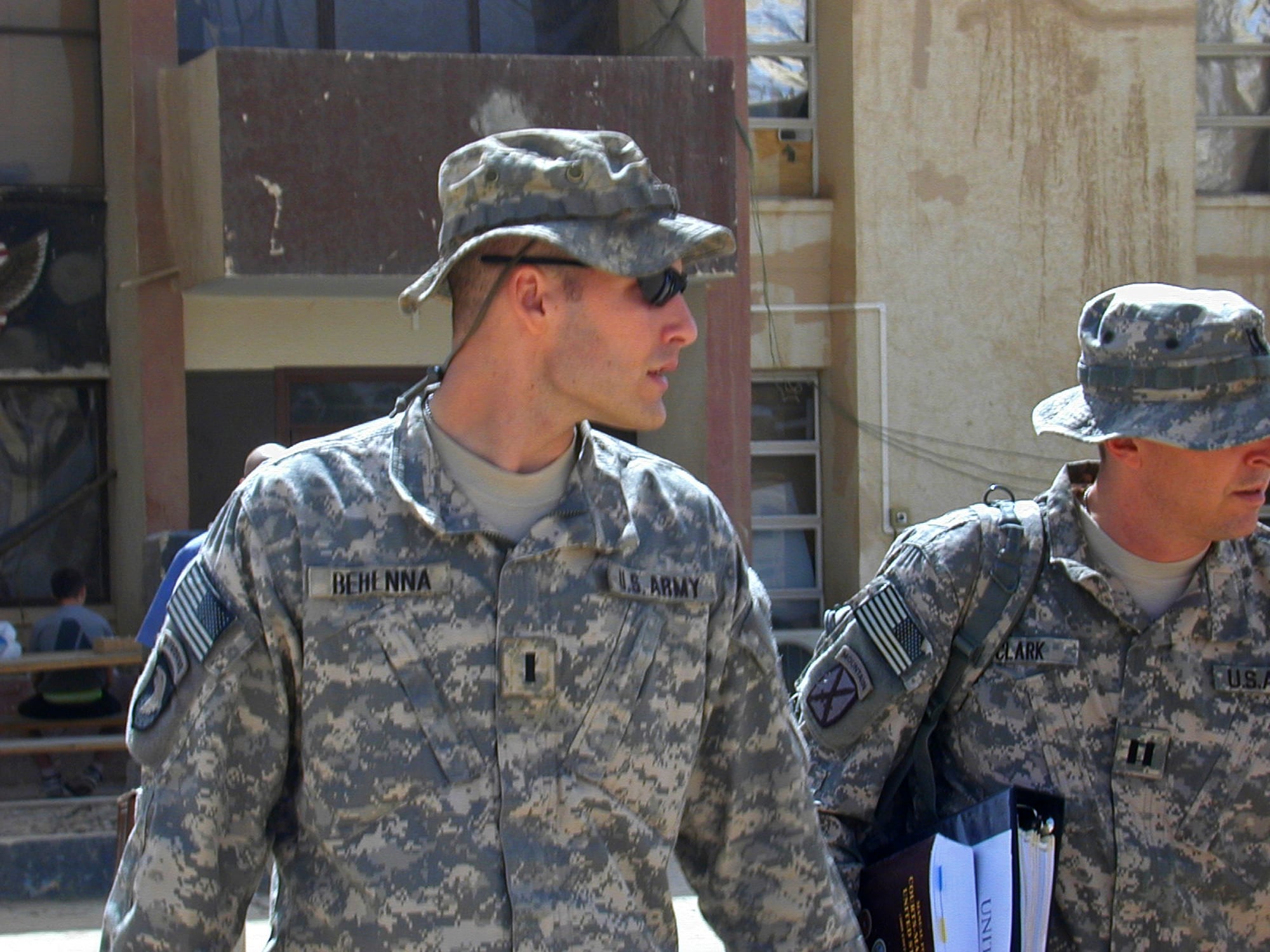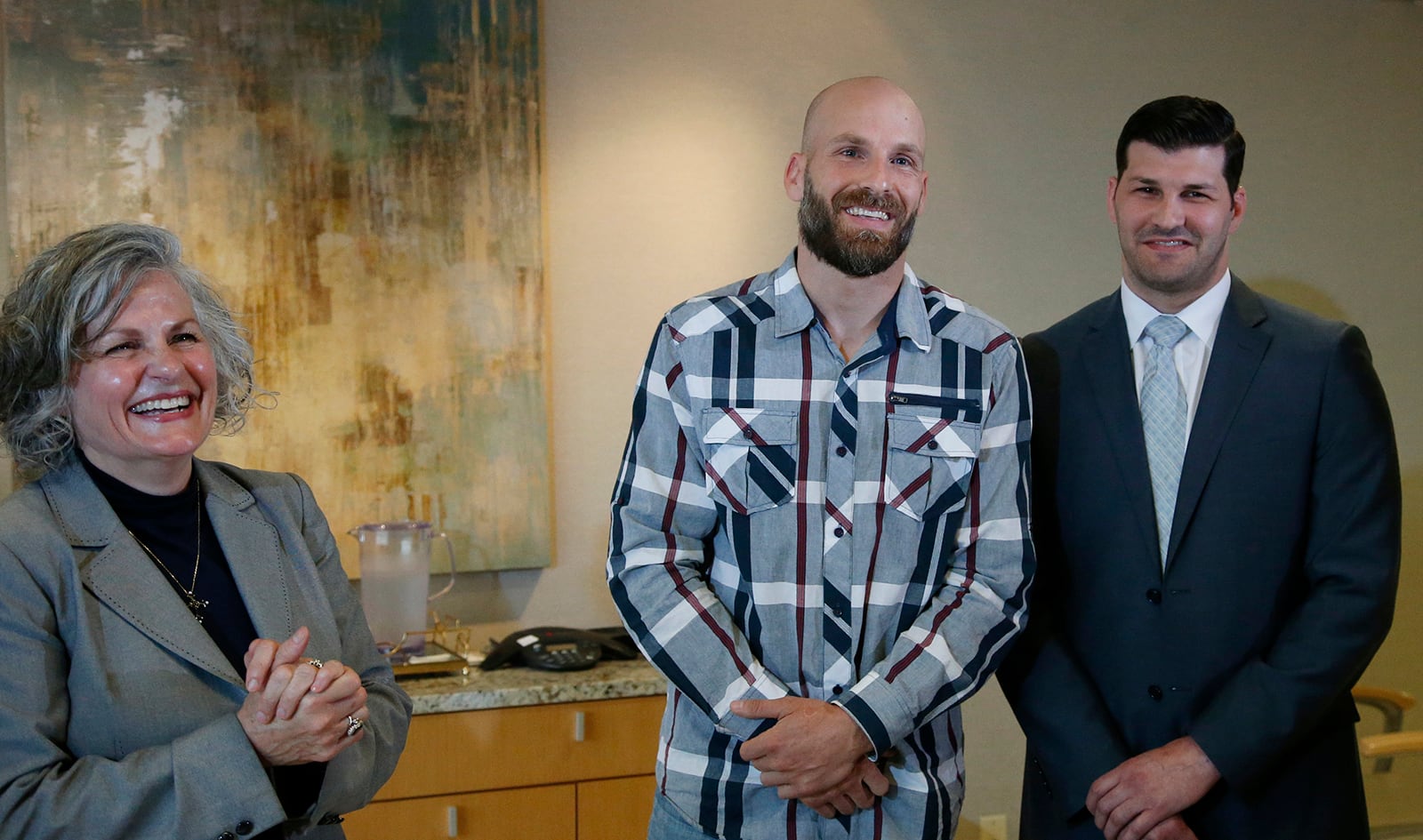OKLAHOMA CITY — A former U.S. soldier from Oklahoma who was pardoned this week for his 2009 conviction for killing an Iraqi prisoner said Wednesday that he initially didn’t answer the White House’s phone call to tell him of the pardon.
Former Army 1st Lt. Michael Behenna said he was on the phone with his father, retired FBI agent Scott Behenna, when the call came about 2:30 p.m. Monday as he was driving. He didn’t recognize the number and thought it might be a telemarketer, so he let it go to voicemail.
After checking his messages, he returned the call and was told President Donald Trump was granting him a pardon and would call him back. When Behenna’s phone rang again, it was Trump’s office putting the president on the line so he could tell Behenna personally.
“I had tears in my eyes, my heart’s beating fast and I’m smiling from ear to ear. I had a feeling I knew what it was for,” the 35-year-old Behenna said, adding that the call was a surprise because he expected his attorneys to inform him of the decision instead.
RELATED

Behenna was convicted in 2009 of unpremeditated murder in a combat zone in the 2008 killing of Ali Mansur Mohamed, an unarmed Iraqi prisoner.
Behenna said he acted in self-defense when the man reached for Behenna’s handgun, but the Army said the argument didn’t hold up because Behenna was pointing his weapon at the prisoner.
Behenna admitted during his trial that instead of taking the prisoner home as he was ordered, he took the man to a railroad culvert, stripped him, then questioned him at gunpoint about a roadside bombing that had killed two members of Behenna’s platoon.
A military appeals court in 2012 found that jury instructions on self-defense were incorrect and that prosecutors failed to tell the defense of a crime scene expert who supported the claim of self-defense, but the court said the errors were harmless and did not affect the outcome of the trial.
“What I was told by President Trump ... was that I received a pardon because of the prosecutorial misconduct that happened during the trial,” Behenna said Wednesday.

The first person he told about the pardon was his father, who didn’t believe him. Scott Behenna recalled later that after talking to his son, he called the same number and was put in touch with a White House attorney who assured him the pardon was real.
Behenna’s mother, former federal prosecutor Vicki Behenna, stood waiting outside her son’s vehicle after he had parked, unaware of the topic of his phone conversations. Once he told her, she also didn’t believe him.
Behenna, a native of the Oklahoma City suburb of Edmond, said he initially planned on a career in the military, but is now focused on a 20-acre (8-hectare) cattle ranch he owns in Guthrie, where he lives about 25 miles (40 kilometers) north of Oklahoma City.
Supporters of Behenna’s pardon request include Oklahoma Sens. Jim Inhofe and James Lankford, both Republicans, and Republican state Attorney General Mike Hunter, who twice sent a letter to Trump, urging that a pardon be granted.
Michael Breen, president and CEO of Human Rights First, which describes itself as an organization that urges "the U.S. government and private companies to respect human rights and the rule of law," criticized the decision.
“President Trump’s pardon of a service member convicted of murder by the U.S. military undermines the morale of our armed forces, erodes our allies’ trust of the armed services overseas and — by showing that we won’t hold our forces to the same standards we demand of others — places our service members in greater danger in combat zones and beyond,” Breen said in a statement.
Behenna said he has maintained contact with several soldiers he served with in Iraq and that many have called him since Monday to say his pardon was overdue.





